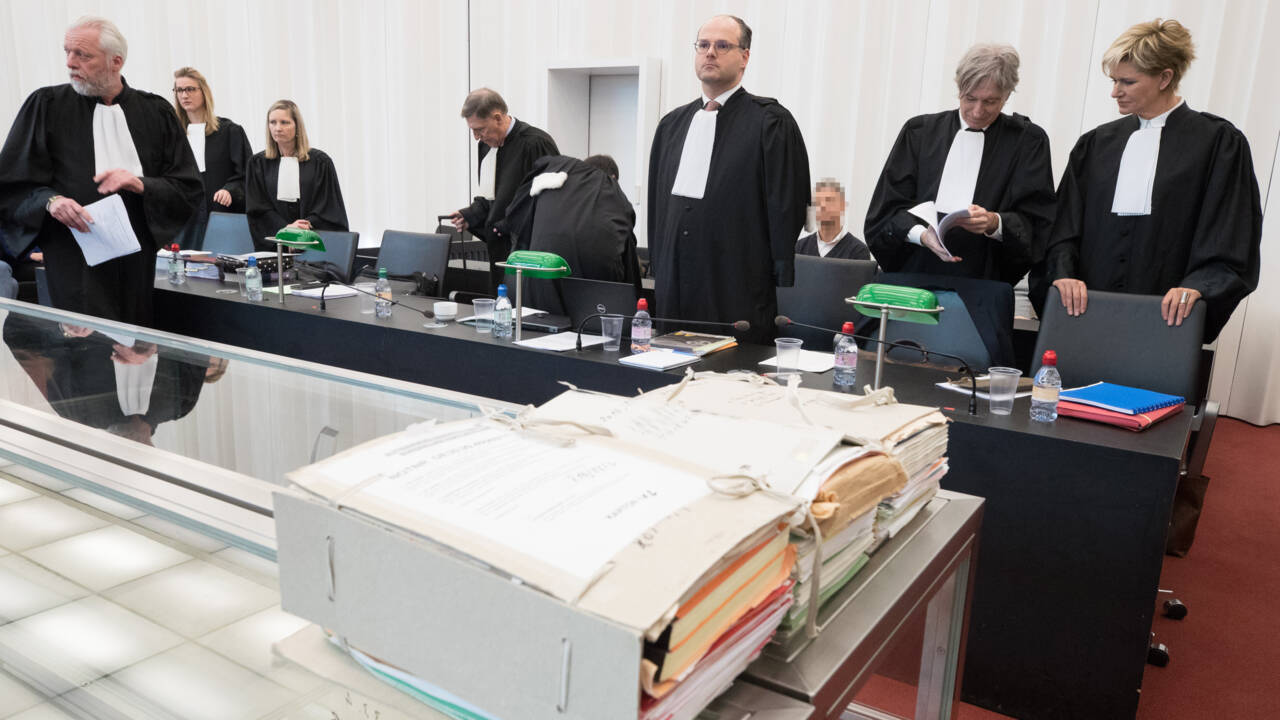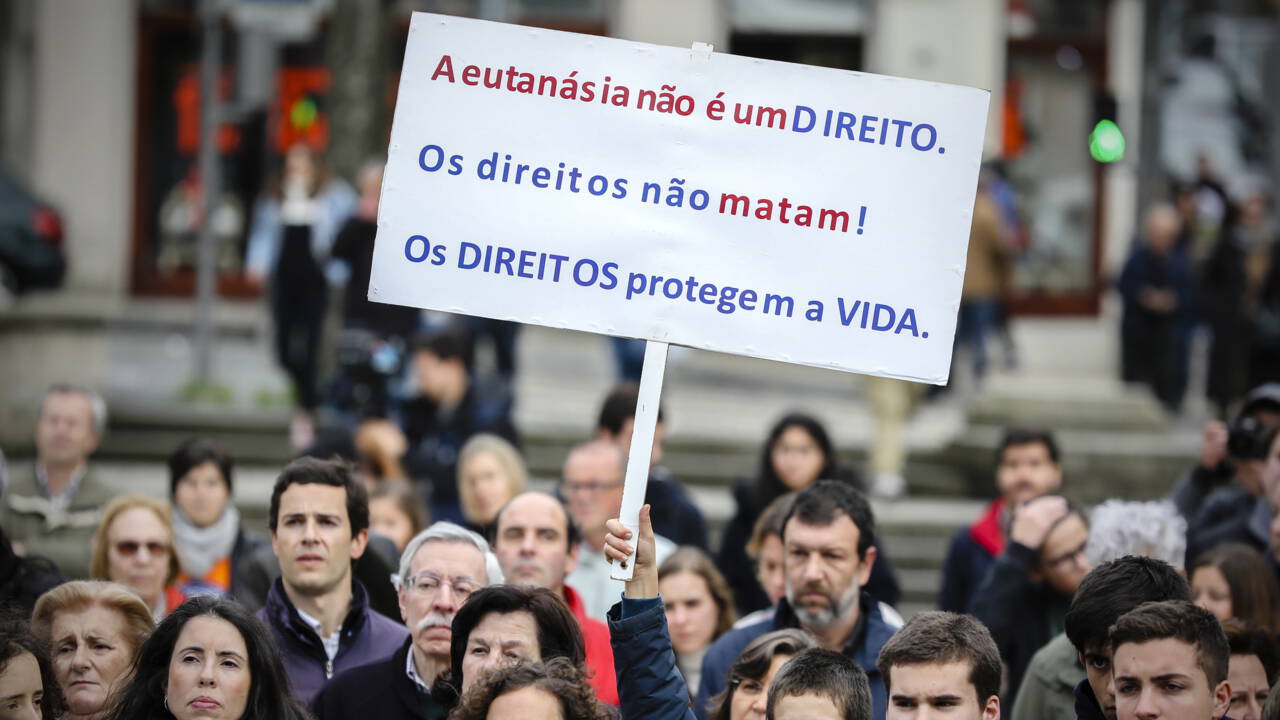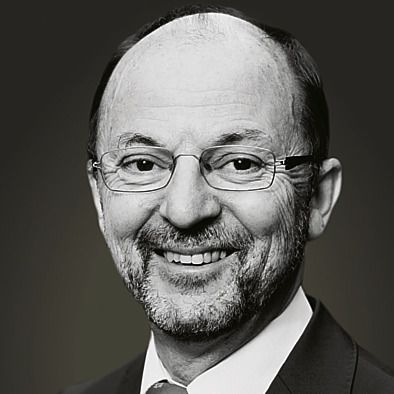End of life
A signpost in the maze of completed life concepts
This will be the year of the completed life debate. At the end of this month, a study will be published that the Cabinet had commissioned to be carried out on this subject. Among other things, it will show how many over-55s live with a death wish. D66 subsequently comes up with a proposal for a Completed Life Act. What do you need to know before the discussion starts? A signpost in this ideologically charged maze of concepts.
Marten van de Wier and Wilma Kieskamp and Peter Henk Steenhuis - 11 January 2020, 1:00
The Completed-Life Debate was on hold for a while. The four coalition parties agreed that this Cabinet would not come up with proposals on 'Completed Life', but would commission an investigation into this sensitive subject. At the end of this month that study will be published.
The researchers want to answer the question: how many Dutch people have a 'persistent death wish', without being seriously ill?
Usually 'completed lives' are about the elderly, but the researchers chose the broad age group of 55 years and older. In this way they hope to find out what influence age has on having a death wish. Twenty thousand Dutch people from this age group completed a questionnaire last year. The researchers conducted 34 in-depth interviews with people with a death wish, and also questioned several general practitioners. Project leader Els van Wijngaarden of the University of Humanistics in Utrecht also investigates the background of those death wishes.
Member of Parliament Pia Dijkstra of D66 is expected to come next month with her initiative bill on completed life, which was parked until after the research. It will first go to the Council of State for advice and then to the House of Representatives. There is not much chance that they will vote on it during this term of the Cabinet.
As far as Dijkstra is concerned, care professionals trained as end-of-life counselors should assess whether a person's dying wish is 'voluntary, well-considered and sustained'. D66 thinks of a lower limit of 75 years. The VVD does not want an age limit.
Completed life, tired of life
The word combination 'completed life' appears after a plea by law professor Huib Drion in 1991. Drion wrote in an opinion piece in NRC Handelsblad that attention should not only be paid to the possibility of euthanasia for sick people, but also to 'the old human being, who thinks he has lived long enough'.
The citizens' initiative 'Uit Vrije Wil' [Voluntarily], which included Hedy d'Ancona, Frits Bolkestein, Mies Bouwman, Dick Swaab, Jan Terlouw and Paul van Vliet, put 'completed life' on the agenda of the Lower House in 2010. The proposal was rejected in 2013, but the discussion remained.
'Completion' (Dutch: voltooien) consists of vol = 'full', which originally means 'to the end', and tooien = 'ornamenting', which used to be synonymous with 'making'. Someone with a completed life, the language says, has completed his life to the end. It is a term that emphasizes the individual: only a person himself can judge whether his life is complete.
It is an alternative to the word 'tired of life' which has a much older history: Vondel used it as early as the 17th century in a poem about a greybeard who asks Death to fetch him. But 'completed life' has a more positive side. Emeritus professor of ethics Govert den Hartogh considers the term an 'unfortunate euphemism', he wrote in a journal for bioethicists. "As if life is like a job done at some point. Apparently it must be concealed that we are talking about people who are seriously suffering and therefore no longer see any other way out, for we must above all maintain the impression that this is a culmination of free self-expression". According to ethicist Frits de Lange, the term creates the 'illusion' of a life project that we can plan and complete.
Euthanasia, the soft death
Euthanasia used to have a broad meaning in international medicine, based on the Greek 'euthanasia', a 'soft death'. In 1950, for example, Van Dale [dictionary] also included pain relief for the dying.
Euthanasia, which was regulated by law in the Netherlands in 2002, now has a much narrower definition. According to the modern 'Van Dale', it is about 'ending the lives of patients who endure unbearable and hopeless suffering, at their own request'. By a doctor, you should add. Help with suicide by anyone else, outside the euthanasia rules, is punishable. Those who, according to doctors, do not suffer unbearably, do not qualify for euthanasia.
Supporters of a Completed Life Act want help with suicide to be allowed under certain conditions, if people feel their lives are complete. In this respect, their own assessment is decisive, not that of another person, such as a doctor.
According to D66, the euthanasia law has a 'strictly medical perspective', and dying with a completed life should also be possible without medical complaints. That is why the party does not use the word euthanasia, and D66 wants to regulate 'completed life' outside the euthanasia law. What such a death should then be called, is still undecided. D66 speaks of a 'dignified end of life'. Critics warn against the image that this could conjure up: that a natural death would be 'unworthy'.
Some ethicists prefer the government to regulate completed life within the euthanasia law. It is possible that euthanasia then takes on a broader meaning. Dutch Bureau of Statistics (CBS) already used it: last autumn it reported that 55 percent of Dutch people are in favor of 'euthanasia' for 'people who are tired of life'.
Suffering from life
Just because you find your life complete doesn't necessarily mean you want to die too. According to critics, the term 'completed life' is therefore not appropriate. The 'suffering' is hidden away with this phrase. Without suffering there will be no wish for death, according to a committee of the KNMG doctors' organization, for example, in 2004. According to them, 'Suffering from life' is a better description.
According to the Dutch Association for a Voluntary End of Life (NVVE), an advocate of self-determination around death, it is the other way round: not everyone who 'suffers from life' also wants to leave life, as would be the case with a completed life situation, according to the NVVE.
To make things even more complicated: there is also a group of people who are not suffering, but do have a death wish and consider their life to be complete, as the Schnabel Committee wrote in 2016 in an advisory report on 'completed life'.
On its website, D66 opts for both concepts, describing 'completed life' as 'suffering from a life that has become too long for people'. Suffering then is what the older person himself understands by it, the party emphasizes. In any case, proponents of a completed life law do not want the term 'suffering' to oblige a doctor to judge that suffering, as is the case with euthanasia.
Incidentally, the researchers who are working on a completed life study commissioned by the Cabinet use yet another definition: in their view, these are people with a 'persistent death wish' who are not seriously ill.
The principle of self-determination
Three main ethical principles govern the debate on euthanasia and completed life: self-determination, mercy and the right to life. Proponents of a law of completed life emphasize self-determination: everyone should be able to decide for themselves what to do with their body, or life. This can be at odds with the right to life, which is enshrined in international treaties. This dictates that the government must protect the lives of citizens. If the Netherlands wants to allow life to end with a completed life, then the government must therefore build in guarantees that someone voluntarily chooses death, the Dutch Human Rights Board stated in an advisory report.
According to health lawyer Esther Pans, in the euthanasia law of 2002, 'self-determination' is not the guiding principle, but 'mercy'. After all, a doctor may only grant euthanasia if someone is suffering unbearably and hopelessly. After 2002, self-determination gained an increasingly prominent place in the debate on euthanasia and completed life. Anyone who insists on self-determination believes that someone with a completed life should not be dependent on mercy.
Dignified ageing
Is there an alternative possible to the frame of a 'completed life' behind which you can put a full stop? The ChristenUnie launched a counter-offensive in 2017 under the name of 'dignified aging'. Together with broadcaster MAX, the Elderly Unions and parties SP and CDA, the party published a manifesto with which they want to increase the well-being of the elderly. The ChristenUnie, opponent of active termination of life in case of a completed life, believes that efforts should first be made on 'preventing a completed life'.
The initiators want a society 'in which the elderly are noted and appreciated', said Christian Union leader Gert-Jan Segers, and the advocates of self-determination agree with this. D66-leader Alexander Pechtold signed the manifesto, and the cabinet with D66 and VVD adopted it last year. But better care for the elderly, so that they can grow old with dignity, is, according to D66, still separate from the need of some elderly people to make active termination of life possible.
The manifesto puts forward a perspective on communality: one that places the responsibility for the welfare of the elderly with society. It is a plea for caring, mercy and solidarity. Completed life' and 'dignified aging' do not exclude each other, but place a different emphasis. 'Decent ageing' is less about the individual, and more about the role of all the others.
Translated with
www.DeepL.com/Translator (free version)




